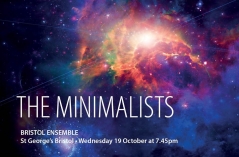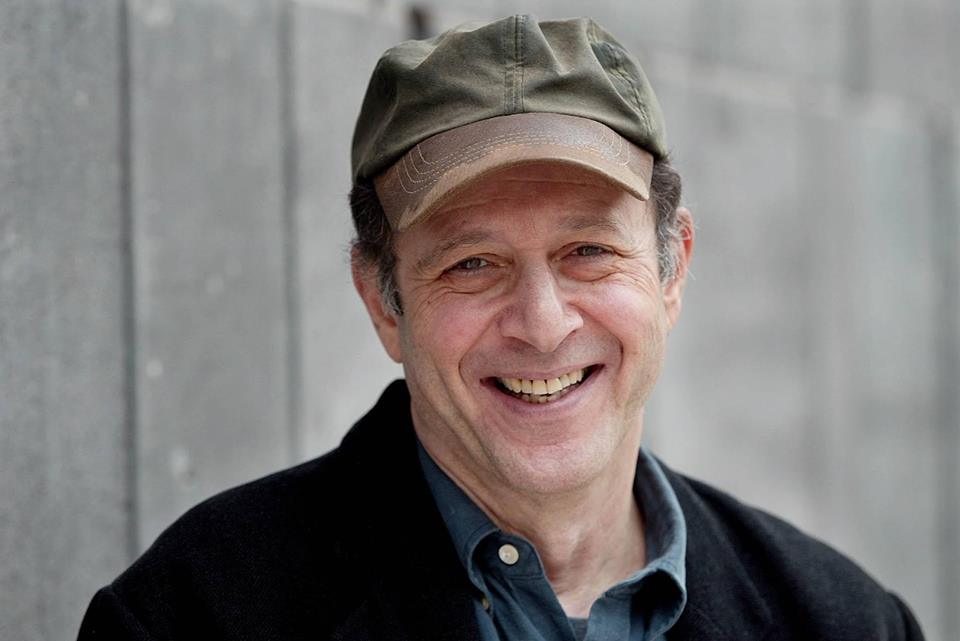The Minimalists I - Steve Reich at St George's in Bristol - Concert review

Posted on: 2016-10-23
Our rating:
This was unquestionably one of the musical highlights of the year performing some of the most challenging, compelling, inventive and brilliant works to change the face of contemporary music.
Celebrating the 80th birthday of minimalist maestro Steve Reich, the Bristol Ensemble and Choir of Royal Holloway put on on a peerless, diverse concert of music covering an impressive range of the composer's magnificent oeuvre at St George's in Bristol on Wednesday 19 October 2016.

Along with the likes of La Monte Young, Terry Riley, John Adams and Philip Glass, Reich can easily lay claim to being one of the very few composers to have changed the face of contemporary music history in his own lifetime. To some, he is the greatest American minimalist composer on the planet (it's a close call, but for me Philip Glass wins every time), and he has written some of the most original, distinctive and pioneering music of the 20th and 21st centuries.
His innovative use of tape loops, amplification, sampling and pre-recorded material to double up alongside musicians playing live have, as well as his characteristic use of propulsive rhythms, pulses and unique instrumentation (often pianos, vibes, marimbas, glockenspiel) means his music is just as vibrant, alive, fresh and vital as it was when he originally wrote it.
Reich has also influenced an eclectic range of modern musicians and bands, including the likes of Brian Eno, David Bowie, Kraftwerk, Aphex Twin and Radiohead.
To a palpably enthusiastic and excited audience (after all, how often does Reich's music get played in the city?), the concert proper kicked off with Clapping Music, written in 1972 and consisting of two people on stage doing precisely that - clapping. Starting off with a straightforward rhythm, the piece increases in intensity and dynamic interest with the second performer straying slightly off-kilter from the rhythms of the first, creating a dislocated, syncopated rhythmic texture that eventually sees both performers finish in unison.
Two of the composers lesser known vocal works - Proverb and Know What is Above You - were given utterly sublime and beautiful performances. Proverb takes its inspiration from Reich's creative period of experimenting with speech melody, the text using the quote "How small a thought it takes to fill a whole life", a somewhat apposite aphorism that could indeed be used to describe his lifetime exploring the musical possibilities of the minimalist medium.
Know What is Above You - written in just over a week - is a short piece for three sopranos, one alto and percussion, in four sections, and takes an early part of the Talmud reflecting that we are not alone in the universe and everything we do and say has an effect on our soul and the souls of those around us. An exquisite, heavenly, almost preternatural concept that was performed and enshrouded in similar musical mastery and mysticism; exultant, majesterial and a transcendent composition of the musical heavens.
But the two towering, show-stopping works of the evening were two of Reich's most pivotal, groundbreaking pieces - Different Trains and City Life.
Different Trains is a three-movement composition for string quartet and tape and is based on train journeys Reich made during World War II between New York and Los Angeles to visit his separated parent. On those journeys, the thought occurred to him that, had he been living in Europe and not the United States, then the type of train - and his fate - might have been very different indeed.
The Grammy Award-winning piece is a musical tour de force, a skillful, adroit fusion of all its inventively enmeshed elements of looped tape, recorded speech and instruments which often mimic the rhythms and cadences of actual vocal utterances.
The final piece of the evening, City Life, truly was a perfect case of saving the best until last. Full of raw energy, irrepressible vibrancy, and a musical dynamism and hustle and bustle that represents the vitality of the full-on, sprawling metropolis it's depicting, the composition's 24 minutes was a musical whirlwind of breathtaking, giddying invention.
Utilizing digital samplers, speech and sounds recorded by Reich himself in New York, City Life is a frenetic, blazing aural assault of car alarms, car horns, air brakes, sirens and the like integrated into the score. Never has a piece so brilliantly or stunningly created an aural evocation of city life, so immersed and involved are you in this seminal, groundbreaking work.
Sharing conducting duties were Rupert Gough and John Pickard - waving their batons to the masterful, faultless Bristol Ensemble and Choir or Royal Holloway with evident glee and gusto - along with the electrifying pulses and rhythms of this truly outstanding, game-changing music, interspersed with the quieter, more delicate choral offerings to cut through and calm the evening's otherwise sheer heady exuberance.
With concerts celebrating other minimalist masters to follow - Arvo Part in November and Philip Glass in February - this was unquestionably one of the musical highlights of the year performing some of the most challenging, compelling, inventive and brilliant works to change the face of contemporary music.
5/5
bristol reviewer 212

Article by:


